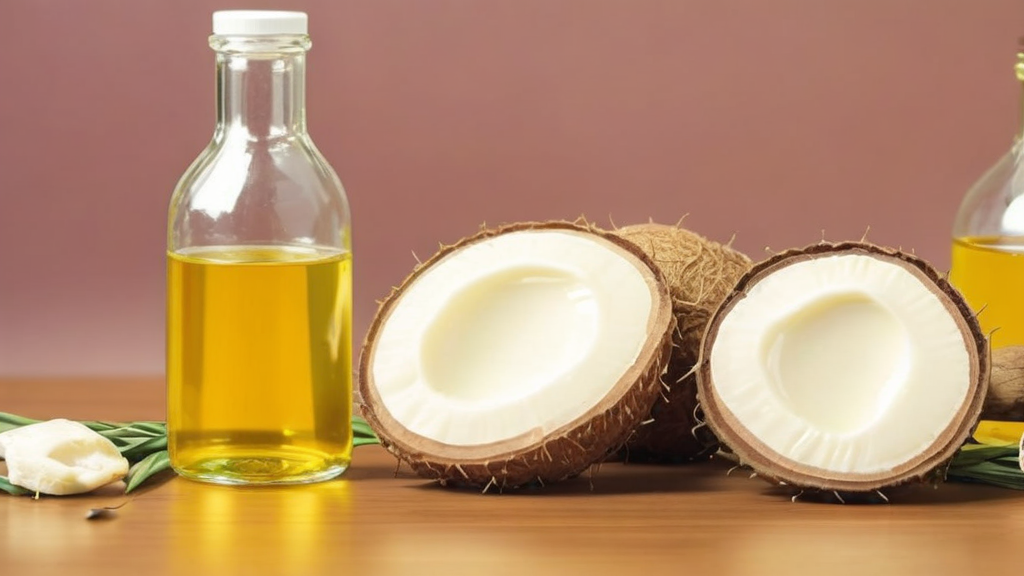Introduction
Oil is an essential ingredient in cooking, but choosing the best cooking oil can be overwhelming due to the wide variety of options available on the market. In this article, we will guide you through the different oil options and give you recommendations based on their quality and health benefits. Read on to find out which is the best oil for cooking!
The king of oils: Extra virgin olive oil
Extra virgin olive oil is considered the king of oils due to its excellent quality and multiple health benefits. This oil is obtained from olives through a cold extraction process, which preserves its nutritional properties and unique flavor.
Extra virgin olive oil is rich in oleic acid, a monounsaturated fat that promotes cardiovascular health by lowering LDL cholesterol and increasing HDL cholesterol. In addition, it contains antioxidant polyphenols and vitamin E, which protect the body against oxidative stress and have anti-inflammatory properties.
This oil is very stable at high temperatures and is perfect for both cooking and raw use. Its intense and fruity flavor makes it an ideal option for dressing salads and pasta dishes. In addition, extra virgin olive oil is sustainable and produced in Spain, making it an economical and environmentally friendly choice.
A healthy alternative: High oleic sunflower oil
If you are looking for an alternative to olive oil, high oleic sunflower oil is an excellent option. This oil is obtained from sunflower seeds and has a high content of oleic acid, a monounsaturated fat beneficial for health.
High oleic sunflower oil is more heat resistant than refined sunflower oil, making it suitable for frying and cooking at high temperatures. However, it is important to keep in mind that its oxidative stability is lower than that of extra virgin olive oil, so it is not recommended to reuse it for frying several times.
This oil has a mild and delicate flavor, making it ideal for preparing sauces, dressings and homemade pastries. Like olive oil, high oleic sunflower oil is a sustainable option and its purchase contributes to the local economy.
An exotic option: Virgin coconut oil
If you want to give an exotic touch to your dishes, virgin coconut oil is an excellent choice. This oil is obtained from coconut meat and has a solid texture at room temperature, but melts quickly when heated.
Virgin coconut oil is rich in saturated fatty acids, which have been the subject of controversy in the past. However, recent studies have shown that the fatty acids present in virgin coconut oil, such as lauric acid, have beneficial health effects, such as increasing HDL cholesterol and having antioxidant and anti-inflammatory properties.
This oil is very stable at high temperatures and is ideal for frying and cooking. Additionally, its sweet flavor and coconut aroma make it a popular ingredient in Asian cuisine dishes and desserts. It is important to note that virgin coconut oil is imported and purchasing it can have a greater environmental impact than local oils.
Conclusion
In short, the best oil for cooking depends on your preferences and needs. Extra virgin olive oil is the healthiest and most versatile option, while high oleic sunflower oil is a cheaper alternative. Virgin coconut oil, for its part, adds an exotic touch to your dishes.
Remember that extra virgin olive oil is the most recommended for use both raw and for cooking, due to its nutritional properties and its stability at high temperatures. Choose the oil that best suits your needs and enjoy healthy cooking full of flavor!
References
1. López-Yerena, A., et al. (2020). Extra virgin olive oil: characteristics, healthy properties and its relevance in food. Hospital Nutrition. 37(2).
2. Martínez-González, M. A., et al. (2019). Extra virgin olive oil consumption and cardiovascular disease: benefits beyond the Mediterranean diet. European Journal of Clinical Nutrition. 73(S1).
3. Pérez-Martínez, P., et al. (2011). Olive oil and health: summary of the II international conference on olive oil and health consensus report, Jaén and Córdoba (Spain) 2010. Nutrition, Metabolism, and Cardiovascular Diseases. 21(7).
